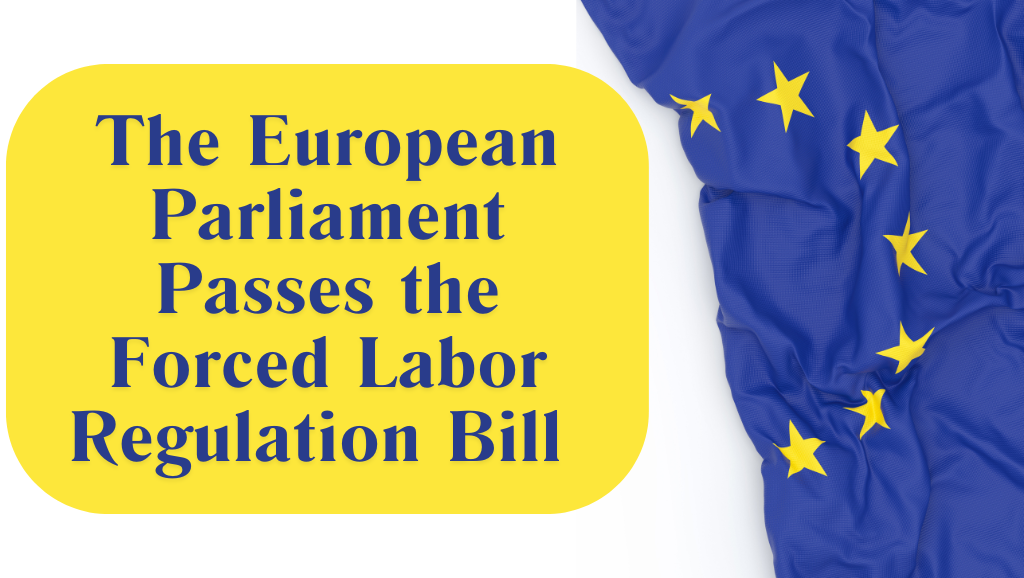In a groundbreaking move, the European Union has passed the Forced Labour Regulation (FLR), a new law that bans the sale of products made with forced labour within the EU market. This pivotal legislation reflects a growing global commitment to eradicating forced labour and holding companies accountable for the ethical practices within their supply chains.

What Does the Forced Labour Regulation Do?
The FLR aims to remove any products linked to forced labour from the EU market. Under the regulation:
1. Banned Goods: Any goods found to be produced using forced labour must be withdrawn from sale. They can be donated, recycled, or destroyed to prevent re-entry into the market.
2. Company Compliance: Businesses must take proactive steps to eliminate forced labour in their supply chains. Non-compliance can result in fines and other penalties.
3. Market Re-entry: Products may only re-enter the EU market if companies can conclusively demonstrate that forced labour has been eradicated from their production processes.
This measure applies not just to goods produced outside the EU but also to those manufactured within its borders, ensuring that no corner of the supply chain is exempt from scrutiny.
Why This Matters?
Forced labour is a pervasive issue affecting millions worldwide. According to the International Labour Organization (ILO), over 27 million people are trapped in forced labour globally, with many producing goods for international markets. By implementing the FLR, the EU sends a clear message that human rights violations will not be tolerated in the pursuit of profit.
Implications for Businesses
This regulation holds significant implications for companies operating in or exporting to the EU:
• Increased Accountability: Businesses will need to thoroughly audit their supply chains to ensure compliance with the FLR.
• Transparency Requirements: Firms must provide evidence of ethical labour practices, potentially involving third-party certifications and audits.
• Financial and Reputational Risks: Non-compliance could lead to hefty fines, legal action, and damage to a company’s reputation.
A Positive Step Forward
Organizations like Walk Free, a global movement working to eradicate modern slavery, have welcomed the regulation as a “positive step forward” in the fight against forced labour. The FLR not only raises the bar for ethical business practices but also challenges other nations to adopt similar legislation, creating a ripple effect in the global fight against modern slavery.
Challenges and Next Steps
While the FLR is a critical step, its success will depend on effective enforcement and the cooperation of all stakeholders:
• Governments: Need to invest in monitoring systems and cross-border collaboration to detect and prevent forced labour.
• Businesses: Must adopt robust supply chain management practices and address the root causes of forced labour.
• Consumers: Play a vital role by demanding transparency and ethical practices from the brands they support.
A Call to Action
The EU’s Forced Labour Regulation represents hope for millions of vulnerable individuals trapped in forced labour. However, this victory must not lead to complacency. Instead, it should inspire continued advocacy, innovative solutions, and collaborative efforts to eradicate forced labour from all corners of the world.
As individuals, businesses, and governments, we each have a part to play in creating a world where products are made with dignity and respect for human rights. The EU has taken a bold step forward—now, it’s time for the rest of the world to follow suit.
